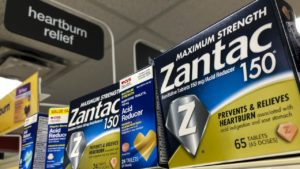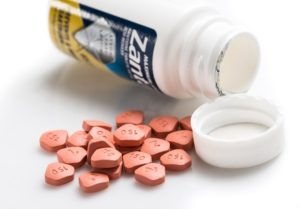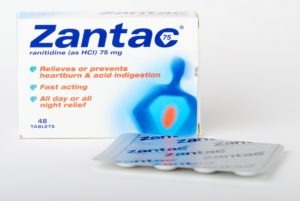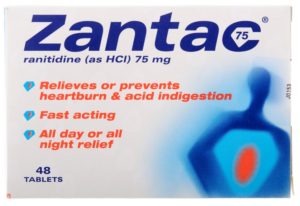Should I Be Worried If I Took Ranitidine-Based Drugs Such as Zantac?

As you may have heard, Zantac and all other ranitidine-based drugs have been removed from retail shelves and the U.S. Food and Drug Administration (FDA) has officially requested they be banned from domestic markets entirely due to contamination from a carcinogenic chemical called N-nitrosodimethylamine, also known as NDMA.
Anytime a medication or group of medications is recalled, it instantly puts a large number of past and current users on high alert, and for good reason. That being said, here we will go over some steps you can take if you already have a history of Zantac use:
I Took Zantac, What Now?
Stay Calm and Don’t Panic
A drug recall that affects you should obviously be cause for some concern, but users should note that recalls are somewhat common, especially for popular drugs such as Zantac. In this case, the drug was recalled because it was found to contain more than the daily allotted amount of NDMA. This is concerning, but to be clear, NDMA is an environmental byproduct and therefore is all around us already. Some researchers have equated the amount of NDMA in Zantac to the amount that is found in other common goods, such as:
- Dairy and meat products
- Some drinking water
- Alcoholic beverages
So, you should probably halt your Zantac use just to be safe, but that doesn’t mean you should become overly concerned.
Consult With Your Doctor
The FDA as well as other health agencies have suggested that Zantac users seek different treatment options for their heartburn or antacid-related issues. The best way to go about this is to consult with your physician. By doing so, you can:
- Undergo comprehensive exams to assess whether or not Zantac has affected you
- Discuss alternative treatments and medications
- Determine a plan of action moving forward
Pay Attention to Any Developing Symptoms
For a free legal consultation, call (725) 900-9000
The FDA and the Environmental Protection Agency (EPA) have said that NDMA overexposure can cause numerous health risks, including cancer. The quicker you spot potential warning signs, the better your treatment options will be. Here are a few of the symptoms of potential NDMA overexposure:
- Nausea or vomiting
- Fever or chills
- Abdominal pain or cramps
- Yellowing of the skin
Research More
A physician or healthcare professional will likely have the best health-related information, but that doesn’t mean that you can’t look further into the topic on your own. Two options include:
- Checking the manufacturers’ websites: There are numerous pharmaceutical manufacturers being implicated in ranitidine litigation, so it’s never a bad idea to find the one responsible for making the product you used and researching any materials they may have released. Companies will often share which exact lots have been recalled so that you can make rough estimates as to when you took the drug.
- Connect with an attorney: The legal side of this whole situation can be just as confusing as the medical details, so an experienced Zantac attorney can be an amazing resource for potential claimants.
Are You Considering a Zantac Claim? Call Van Law Firm Today
Claims involving defective and dangerous drugs such as Zantac can be incredibly complicated, stressful, and expensive. In order to give yourself the best chance of recovering maximum compensation, you will need the best help available–luckily, the award-winning Zantac attorneys from Van Law Firm are ready to help. We’ve helped countless accident victims defend their rights, and we can help you do the same. Simply call our office nearest you now for a free, confidential consultation.
No obligation consultations are always free.
Let Us Help You! Call Now: (725) 900-9000


